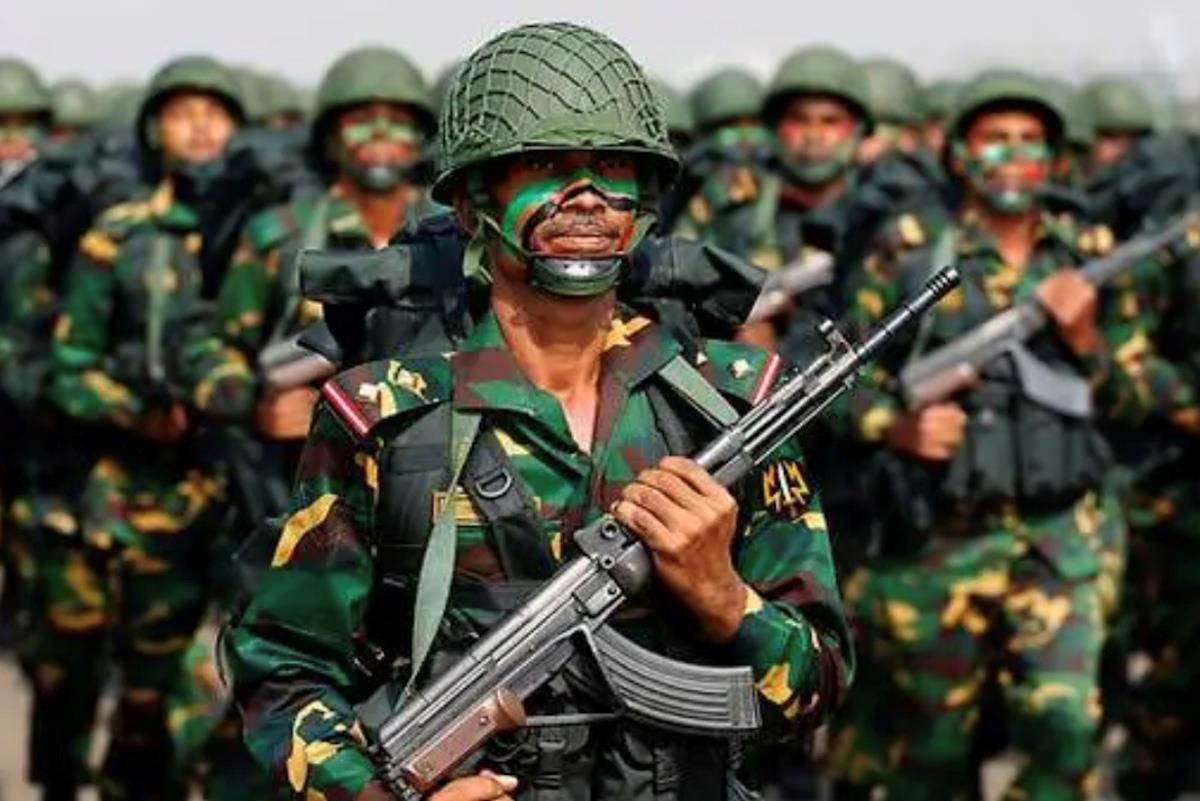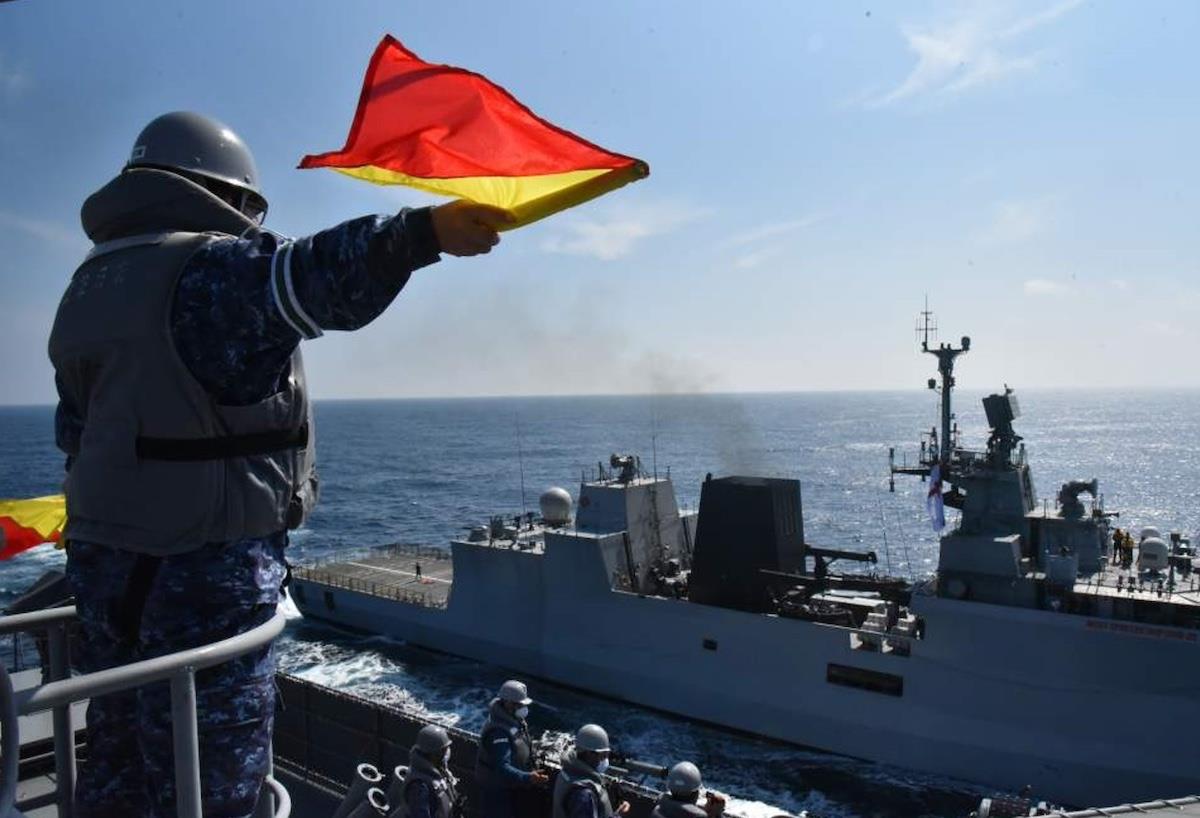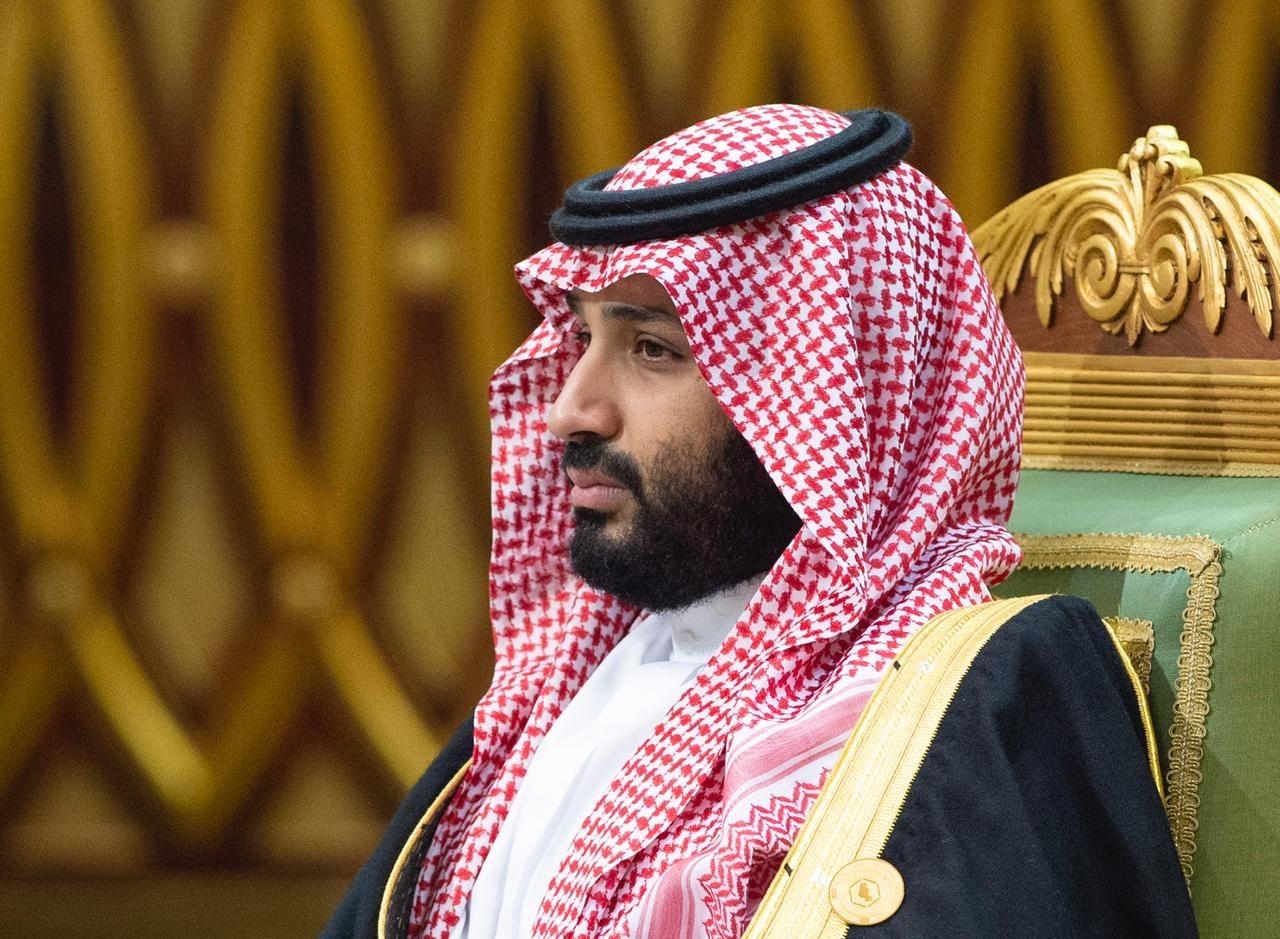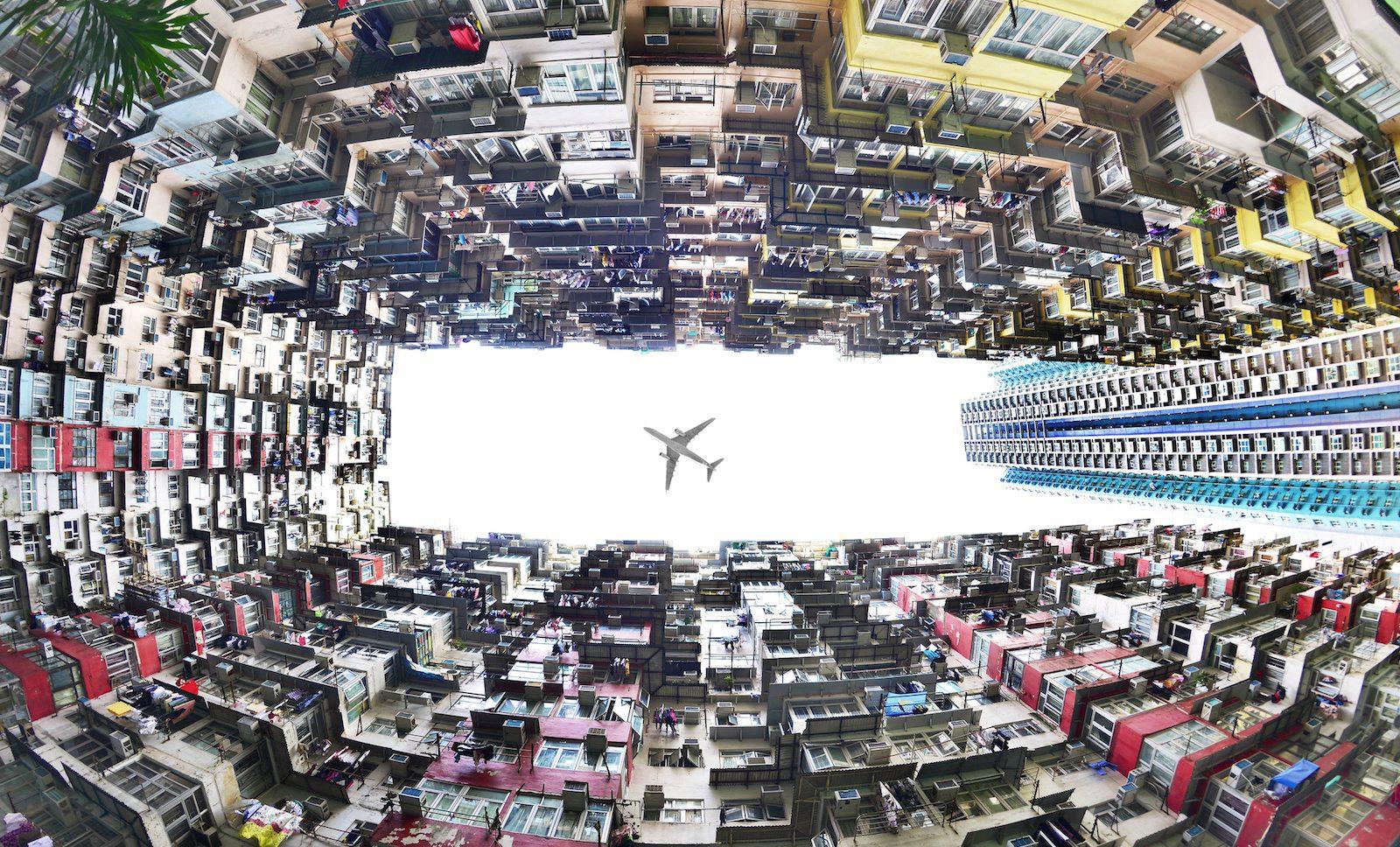
Israel Is Not An Outpost Of The West
Glick: Welcome to another episode of the Carolyn Glick Show. One of the more disturbing developments in recent years has been the rising up of an apparent axis now that Iran enjoys with two superpowers, Russia and China.
And although, you know, it seems to be a real axis, nobody's really spent that much time talking about it, what its strengths are, what drives these three countries together, what can drive them apart, what separates them.
How we're supposed to look at the rising alliance between China and Russia and Iran from an Israeli perspective and from an American perspective. And I think on all things related to Russia and related to China, their interests, how they see the Middle East and how they see their competition with the United States.
My go-to guy has always been David Goldman, my friend and frequent visitor on the show, the Carolyn Glick Show. David is an expert in these areas. He's written about these things prodigiously at the Asia Times where he also serves as deputy editor. And so I'm very glad to welcome back to the Carolyn Glick Show, my friend David Goldman. Thanks for coming back, David.
Goldman: Thank you, Carolyn. It's always a pleasure to talk to you even about depressing things.
Glick: When you think about this burgeoning alliance that Iran is enjoying with China and Russia, where you have China buying around 90 % of Iran's oil every year, according to a Reuters story that I looked up, they said that China is importing around 140,000 barrels of Iranian oil per day.
Iranian oil exports, which are all illicit, at least in terms of them being breaches of American sanctions, comprise 13 % of all of China's oil imports. And Russia, on the other hand, has become a purchaser of Iranian drones and other technologies. They built a Shahed drone facility inside of Russia and they seem to be having...
This appears to be a real alliance where not only does Russia provide Iran with things that Iran needs, but Iran also is providing both China with the oil and Russia with technology and with actual drones and other military hardware that it needs in its war with Ukraine.
So it looks like not only is Iran a client state, but it's also a state that's a major supplier of critical tools of war to Russia on the one hand and energy supplies to China on the other hand. So it all looks quite alarming and I'd like you to talk a little bit about how this has begun to develop and where it stands today and we can take it from there.
Goldman: Carolyn, I'm worried, but I'm not alarmed for a number of reasons. As Robert F Kennedy Jr put it so eloquently in his press conference last week announcing his support for the candidacy of Donald Trump, we pushed Russia into an alliance with Iran and China.
It was not necessary. It could have gone otherwise. In 2008, when the Ukraine crisis was first brewing, I published an analysis saying that we had a choice with Russia. If we push them to the wall over Ukraine, their obvious move would be to ally with our enemies, starting with Iran.
If, on the other hand, we found some kind of deal with Russia over Ukraine, which would have meant Ukrainian neutrality and protection for the Russian minority in Ukraine, we could have extracted from Russia a concession to help us with Iran, which is a prospective nuclear terrorist state. And the question I asked is, which is more important for American interests? Regime change in Ukraine, regime change in Russia, or the possibility of nuclear terrorism in the Middle East?
My strong view was that we should have found a way to deal with Russia over Ukraine and gotten their cooperation over Iran. That was on the table. It no longer is. So there is a three-way alliance, but there are strong limits to it because everyone has intersecting and divergent interests.
A Chinese commentary a couple of weeks ago on a website called Observer, which frequently represents State Council views, said Iran should not try to fight Israel. It can't fight Israel. The air defense it has is primitive. They're old Russian S-300s, and the Russians are not going to give them the kind of air defense that might be able to deal with the countermeasures carried by an Israeli F-15, let alone a stealth aircraft like F-35.
Iran has no land army to speak of, and certainly no tanks. Their aircraft are 50 years old and barely functional. So Iran is in no position to fight a war with Israel. Iran would lose. The Chinese are adamant in their discussion of this publicly and privately that they don't want a war between Iran and Israel. And there's an extremely simple reason for this.
A couple of Israeli rockets hitting the two big Iranian terminals on Karg Island would shut down all of Iran's oil exports. The price of oil would go to US$150 or $200 a barrel. Who is the largest importer of oil from the Persian Gulf? Of course, it's China. That would be a devastating blow to the Chinese economy. So if it came to a shooting war between Iran and Israel, China would be a major loser. Russia is certainly working with Iran to produce drones.
The Shaheed drones that it uses to reasonably good effect in Ukraine probably cost about $10,000 to produce, they might be even cheaper. They're essentially a plywood frame with a moped motor and about $100 worth of electronics. They're very cheap to make. And the Russians use them, of course, very effectively, not because they're hard to shoot down.
They're very easy to shoot down, but you could send 100 of them out at a time, swamp Ukrainian air defenses, and open the way for your more powerful ordnance, your ballistic missiles to get through, which is of course what they did this week in two waves of strikes against Ukraine's energy infrastructure. But the Russians have been extremely cautious about giving Iran any of their better ordinance, the kind that might make a difference.
Iran wants the S-400 system, which can track aircraft much more effectively and in larger numbers and at greater distances than the S-300. We don't know exactly how good the stuff is that Iran has because these Russians have domestic versions and export versions, which are far less effective. Iran has asked for these things, but Russia has not given them.
One simple reason is that Russia has an urgent need for all of its best air defense systems to fight the Ukraine war. It doesn't have a great deal to spare, but it's shown a great deal of willingness, as you know, to cooperate with the Israeli Air Force in Syria. Russia does not want to tangle with Israel.
Glick: On the other hand, in November, the Iranians announced that they had finalized a deal to purchase advanced fighter craft from Russia. I'm just going over the list. They agreed to buy SU-35s, Mi-28 helicopters, and Yak-130 combat trainers. Where does that stand? I mean, that's a major deal.
Goldman: Years away. Russian production of their top-of-the-line aircraft is limited. They need every airframe they can get in Ukraine. So there's no way that Iran is going to come up on the priority list for Russian deliveries above the Russian army in Ukraine. Both the Chinese and the Russians haven't done that much to give Iran the capacity to fight Israel. And I don't believe that either of them wants a war with Israel at this point. Both of them are very vulnerable.
The Chinese worry about their Muslim West in Xinjiang province, as well as destabilization of the Belt and Road countries through Muslim fundamentalism. That's their biggest worry. And they keep accusing the Central Intelligence Agency and the Americans of plotting to create a new arc of crisis. The Chinese press is full of accusations that the United States was behind Islamic fundamentalists in Bangladesh who participated in the overthrow of Sheikh Hasina earlier this month.
There's a limit to how much they want to let the Middle East blow up. That's an inherent vulnerability. Russia is now 20 or 25 % Muslim. It's very hard to know to what extent Muslims are gaining on ethnic Russians demographically. There are many projections that Russia will have a 30% Muslim population by mid-century. They've had major terrorist incidents from Muslims most recently at a prison in the Russian Caucasus. And the Russians are very cautious about the possibility of destabilizing the Middle East.
Remember that Putin went into Syria in 2015 because he feared that the Syrian civil war would spill over into Russian territory, into the Muslim-majority Caucasus.
Glick: Except he also went in there to get a permanent naval base and to return victoriously to the Middle East after the Soviet Union was ousted from the Levant in 1982 during the Lebanon War by the Israeli Air Force. He got a lot out of his partnership with Assad, and that was really what built his rising partnership with Iran as well, because they were both working together with Hezbollah to preserve Assad in power.
Goldman: Yes, they wanted to preserve Assad in power because a Syria controlled by Sunni jihadists would be a threat to his southern flank. I don't know what Putin was thinking. I do know that he told members of the Israeli cabinet that the reason for his intervention in Syria was his fear of spillover of Muslim terrorism into Russia itself.
Israel has a lot of cards to play here. Russia does not want a fight with Israel in Syria. A fight between the Israeli Air Force and the Russians in Syria could go either way I don't know enough about the military details to make a prediction but the Russians from what I can tell do not wish to find out.

Legal Disclaimer:
MENAFN provides the
information “as is” without warranty of any kind. We do not accept
any responsibility or liability for the accuracy, content, images,
videos, licenses, completeness, legality, or reliability of the information
contained in this article. If you have any complaints or copyright
issues related to this article, kindly contact the provider above.





















Comments
No comment